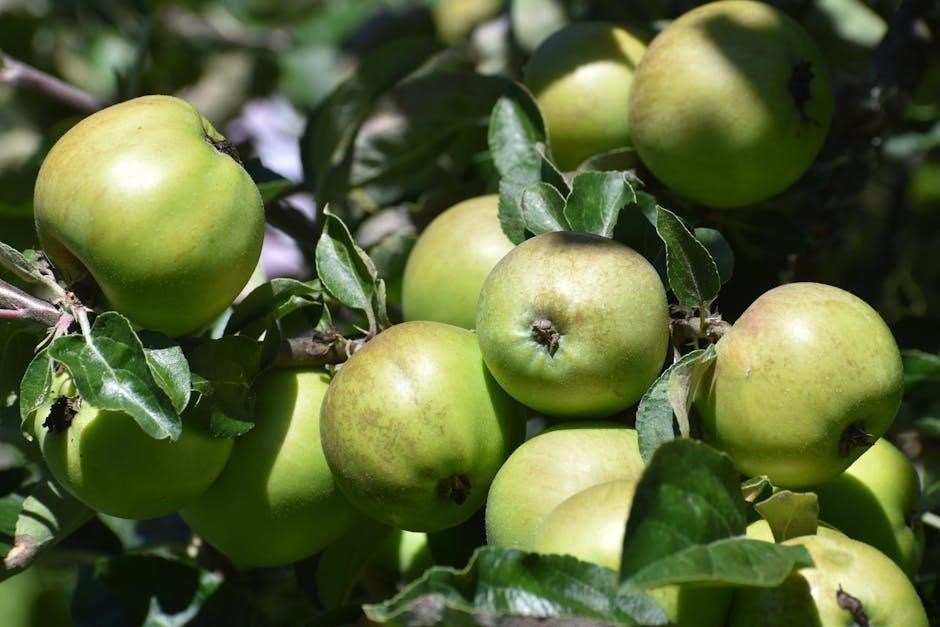Michael Pollan’s In Defense of Food critiques modern nutritionism, advocating for a return to whole, unprocessed foods. The book challenges the dominance of “edible foodlike substances” and promotes mindful eating as a path to better health and sustainability.
Overview of the Book and Its Importance
In Defense of Food by Michael Pollan is a critical examination of modern eating habits and the rise of “nutritionism,” a concept that reduces food to its nutritional components rather than recognizing it as a whole. Pollan argues that this shift has led to the dominance of processed, “edible foodlike substances” over real, nutrient-rich foods. He critiques the food industry’s manipulation of scientific data and the misleading health claims on packaging. The book emphasizes the importance of returning to traditional diets and mindful eating, advocating for a simpler approach to health: “Eat food. Not too much. Mostly plants.” Pollan’s message is both timely and timeless, offering a compelling case for reclaiming our relationship with food and fostering a healthier, more sustainable food culture.
The Relevance of the Topic in Modern Society

Michael Pollan’s In Defense of Food resonates deeply in today’s society, where diet-related diseases and confusion about nutrition are rampant. The book addresses the breakdown of traditional eating practices and the rise of industrialized food systems, which have created a public health crisis. Pollan’s critique of nutritionism and processed foods aligns with growing concerns about the environmental and health impacts of modern diets. His call to “eat food, not too much, mostly plants” offers a simple yet powerful solution to the complexities of contemporary eating. The book’s themes of sustainability, cultural preservation, and the importance of real food continue to inspire movements toward healthier, more mindful eating habits in an increasingly industrialized world. Pollan’s message remains as urgent and relevant as ever, urging readers to reclaim their relationship with food and their health.

The Age of Nutritionism
Nutritionism has led society to value specific nutrients over whole foods, driving confusion and unhealthy choices, as people prioritize science-driven diets over traditional, balanced eating habits.
The Rise of Nutritionism and Its Impact on Eating Habits
Nutritionism, a scientific approach to food, has reshaped modern eating habits by emphasizing specific nutrients over whole foods. This shift has led to confusion, as consumers prioritize “healthy” components like vitamins or fiber over traditional, balanced diets. The rise of processed foods, often marketed with health claims, has further complicated choices. People now seek “edible foodlike substances” enriched with nutrients rather than consuming natural, unprocessed foods. This mindset has fostered an obsession with dieting and labels, undermining intuitive eating and cultural culinary wisdom. As a result, many have lost touch with the simple joy of eating whole foods, leading to widespread dietary dysfunction and chronic health issues. Pollan argues that this fixation on nutritionism has eroded our relationship with food, promoting a culture of fear and misinformation rather than nourishment and satisfaction.
The Shift from Traditional Diets to Processed Foods
The transition from traditional diets to processed foods has profoundly altered modern eating habits. Once centered on whole, locally sourced ingredients, meals are now dominated by industrial products. These “edible foodlike substances” often mimic real food but lack its nutritional integrity. The decline of home cooking and the rise of convenience foods have accelerated this shift. Processed foods, laden with added sugars, salts, and unhealthy fats, are aggressively marketed as healthy options, further misleading consumers. This change has contributed to a disconnect from cultural and culinary traditions, as well as a rise in diet-related illnesses like obesity and diabetes. Pollan argues that this shift reflects a broader societal prioritization of convenience and profit over health and sustainability, undermining the very essence of food as nourishment.
The Concept of “Edible Foodlike Substances”
Michael Pollan’s concept of “edible foodlike substances” highlights the dominance of processed, industrially engineered products over whole foods, prioritizing convenience and shelf life over nutritional value and health.
Understanding the Difference Between Food and Foodlike Products
In In Defense of Food, Michael Pollan distinguishes between “food” and “foodlike products.” Food refers to whole, unprocessed ingredients like fruits, vegetables, and meats, which are naturally nutrient-dense. Foodlike products, however, are highly processed, engineered to appeal to consumers with added sugars, salts, and unhealthy fats. These products often mimic the appearance and taste of real food but lack its nutritional value. Pollan argues that the rise of these industrial creations has led to a decline in public health, as they are designed for convenience and profit rather than nourishment. By focusing on simplicity and tradition, Pollan encourages readers to prioritize whole foods over synthetic alternatives, promoting a healthier and more sustainable diet.

The Role of Industrial Food Systems in Shaping Diets
Industrial food systems have profoundly shaped modern diets by prioritizing convenience, profitability, and shelf life over nutritional value. These systems produce highly processed foods that are engineered to appeal to consumers through aggressive marketing and additives. Pollan argues that such foods, often masquerading as nutritious, contribute to chronic health issues like obesity and diabetes. The industrial food system’s reliance on corn, soy, and sugar has homogenized diets, eroding traditional culinary diversity. Additionally, these systems often exploit subsidies and regulations to dominate the market, making processed foods more accessible than whole foods. This has led to a cultural shift away from home-cooked meals and toward reliance on packaged products, further entrenching unhealthy eating habits. Pollan urges consumers to recognize and resist these influences to reclaim control over their diets and health.

Michael Pollan’s Seven-Word Philosophy
Pollan’s philosophy, “Eat food. Not too much. Mostly plants,” offers a simple, powerful guide to healthy eating, emphasizing whole foods over processed alternatives and mindful portion control.
“Eat Food. Not Too Much. Mostly Plants.”
Marianne Williamson once said, “How you eat is how you live.” Michael Pollan’s philosophy, “Eat food. Not too much. Mostly plants,” aligns with this wisdom. This concise guidance encourages a return to simplicity, promoting whole foods over processed alternatives. Pollan emphasizes the importance of plants in our diets, advocating for a diverse intake of fruits, vegetables, and whole grains. He also warns against overconsumption, suggesting moderation in portions. By focusing on these principles, individuals can foster better health and a more sustainable relationship with food.
The Simplicity and Power of Pollan’s Guidance
Marianne Williamson once said, “How you eat is how you live.” Michael Pollan’s philosophy, “Eat food. Not too much. Mostly plants,” aligns with this wisdom. This concise guidance encourages a return to simplicity, promoting whole foods over processed alternatives. Pollan emphasizes the importance of plants in our diets, advocating for a diverse intake of fruits, vegetables, and whole grains. He also warns against overconsumption, suggesting moderation in portions. By focusing on these principles, individuals can foster better health and a more sustainable relationship with food.

The Science of Nutrition and Its Limitations

Nutrition science often struggles to provide clear answers, leading to conflicting dietary advice. Its focus on individual nutrients overlooks the complexity of whole foods, causing widespread confusion.
Why Nutrition Science Often Fails to Provide Clear Answers
Nutrition science frequently fails to offer definitive guidance due to its reductionist approach, isolating nutrients rather than studying whole foods. This methodology overlooks food’s intricate synergies and the body’s complex responses. Additionally, funding biases, conflicting study results, and the influence of industry-sponsored research further muddy the waters. Pollan argues that this scientific uncertainty has led to a cycle of dietary fads, undermining public trust and fostering confusion about what constitutes healthy eating. By focusing on individual components rather than the whole, nutrition science neglects the broader cultural and ecological contexts of food, leaving consumers with more questions than answers about their dietary choices.
The Misleading Nature of Health Claims on Food Packaging
Health claims on food packaging often mislead consumers, creating a false sense of nutritionality. Terms like “low-fat” or “high-fiber” are exploited to market products as healthy, even when they are highly processed. Michael Pollan highlights that such claims frequently signal the presence of “edible foodlike substances” rather than real food. These labels exploit consumer desires for quick, science-backed solutions, obscuring the fact that true health benefits come from whole, unprocessed foods. Pollan argues that reliance on these claims distracts from the simplicity of eating naturally nutritious foods, fostering confusion and poor dietary choices. By focusing on packaging claims, consumers are led away from the fundamental wisdom of traditional diets, emphasizing the need for a more critical approach to food labeling.

The Importance of Traditional Foods
Traditional foods reflect cultural and biological wisdom, offering health benefits rooted in centuries of culinary practice. They embody the simplicity and nourishment that modern diets often lack.
How Traditional Diets Reflect Cultural and Biological Wisdom
Traditional diets, shaped over generations, mirror the cultural and biological needs of communities. They often emphasize locally sourced, seasonal ingredients, preserving biodiversity and culinary heritage. These diets are not merely sustenance but expressions of identity, passed down through recipes and rituals. Biologically, they align with human physiology, promoting balance and health. For instance, fermented foods common in many cultures enhance digestion and immunity, reflecting an innate understanding of nutrition. Pollan highlights how such practices foster resilience, both in individuals and ecosystems, making traditional diets a cornerstone of sustainable living and a testament to ancestral wisdom.
The Role of Fermentation and Other Ancient Food Practices
Fermentation and other ancient food practices play a vital role in preserving nutrients and enhancing the digestibility of food. Techniques like fermenting vegetables or making yogurt have been used for centuries to create nutrient-dense foods. These methods not only extend shelf life but also boost the bioavailability of vitamins and minerals. Pollan emphasizes that such practices reflect a deep understanding of how food interacts with the human body. Fermentation, for example, increases the production of beneficial gut microbes, promoting overall health. These traditions also connect us to our culinary heritage, preserving cultural knowledge and fostering a healthier relationship with food. By embracing these ancient methods, we can reclaim the nutritional wisdom of our ancestors and improve our well-being.
The Industrialization of Food
- The industrialization of food has transformed natural ingredients into highly processed products.
- This shift has significantly reduced the nutritional value of modern diets.
- Processed foods often contain harmful additives and excess sugars.
- Industrial food systems prioritize profit over health, contributing to public health crises.
- Pollan argues that returning to whole, unprocessed foods is essential for better health.
How Modern Food Production Affects Nutritional Value
Modern food production often prioritizes convenience and shelf life over nutritional value, leading to a decline in the quality of what we eat. Processing strips foods of essential nutrients, fiber, and vitamins, replacing them with additives and preservatives. This transformation creates products that are calorie-dense but nutrient-poor, contributing to dietary imbalances. Industrial practices, such as refining grains and adding sugars, further exacerbate the loss of natural benefits. Pollan highlights how these processes disconnect us from the inherent nutritional wisdom of whole foods, emphasizing the need to reclaim traditional eating habits for better health and sustainability.
The Impact of Agribusiness on Public Health
Agribusiness has profoundly shaped public health, often prioritizing profit over well-being. The dominance of processed foods, laden with sugars and unhealthy fats, has contributed to rising rates of obesity, diabetes, and heart disease. Industrial farming practices, reliant on monocultures and chemicals, compromise soil health and reduce crop diversity, further diminishing nutritional quality. Pollan argues that subsidies for commodity crops, like corn and soy, artificially lower the cost of unhealthy ingredients, making junk food more accessible than whole foods. This system perpetuates health disparities, disproportionately affecting marginalized communities. The consolidation of food production under agribusiness exacerbates these issues, highlighting the urgent need for reform to promote equitable access to nutritious, sustainable food;
The Psychology of Eating
Emotional and cultural relationships with food deeply influence eating habits, shaping preferences and behaviors. Mindful eating practices can help reconnect with food’s true purpose and joy.

Understanding Emotional and Cultural Relationships with Food
Food is deeply intertwined with identity, culture, and emotions, often evoking memories and nostalgia. Traditional dishes symbolize heritage, while meals shared with others strengthen bonds. These connections influence preferences and habits, making food a source of comfort and belonging. However, modern industrial food systems often erase such meaningful relationships, reducing food to mere sustenance. Pollan emphasizes the importance of rediscovering these emotional and cultural ties, advocating for a return to mindful, joyful eating. By reconnecting with food’s cultural significance, individuals can foster healthier relationships with what they eat and cultivate a deeper appreciation for its role in their lives.
The Role of Mindful Eating in Improving Health
Mindful eating encourages individuals to fully engage with their food, savoring flavors and textures while paying attention to hunger cues. This practice fosters a healthier relationship with food, reducing overeating and promoting satisfaction. By slowing down and eliminating distractions, mindful eating helps individuals reconnect with their bodies’ natural signals, improving digestion and overall well-being. Pollan highlights how this approach counters the fast-paced, distracted nature of modern eating, allowing people to enjoy meals more deeply. Mindful eating also reduces emotional eating and guilt associated with food choices, promoting a more balanced and joyful approach to nutrition. Ultimately, it empowers individuals to make intentional decisions about what and how they eat, aligning with Pollan’s philosophy of rediscovering the pleasure and simplicity of real food.
The Role of Government and Policy
Government policies and subsidies often favor industrial food systems, influencing dietary choices and public health. Criticisms highlight the need for reforms to prioritize whole, nutritious foods.
How Food Policies Influence Dietary Choices
Food policies significantly shape dietary choices by subsidizing certain crops and regulating food production. These subsidies often favor corn and soy, making processed foods cheaper and more accessible. As a result, consumers gravitate toward affordable, convenient options rather than whole, nutrient-dense foods. Policies also influence food labeling, with health claims sometimes misleading consumers. Furthermore, agricultural subsidies disproportionately benefit large corporations, perpetuating the dominance of industrial agriculture. These systemic incentives create an environment where unhealthy food choices are economically favored, contributing to public health issues like obesity and diabetes. Reforms in food policy could help shift consumer behavior toward healthier options by making whole foods more affordable and accessible.
Criticisms of Current Food Regulations and Subsidies
Current food regulations and subsidies have been criticized for prioritizing industrial agriculture over public health. Subsidies for crops like corn and soy perpetuate the production of cheap, processed foods, making unhealthy options more accessible. Meanwhile, regulations often fail to address misleading food labeling, allowing health claims to obscure the true nutritional value of products. Additionally, policies disproportionately favor large agribusinesses, marginalizing smaller, sustainable farms. This creates a system where unhealthy foods are subsidized while whole, nutrient-dense foods remain expensive and less accessible. These criticisms highlight the need for reform to align food policies with public health goals and promote equitable access to nutritious food for all.

Practical Advice for Healthy Eating
Pollan advises avoiding industrially produced foods, focusing on whole ingredients, and eating mindful, balanced meals rooted in cultural traditions to promote health and satisfaction.
Guidelines for Making Informed Food Choices
Pollan emphasizes choosing whole, unprocessed foods over “edible foodlike substances.” He advises reading labels cautiously, avoiding products with long ingredient lists, and prioritizing foods your grandparents would recognize. Eating seasonally and locally supports both health and sustainability. Pollan also recommends avoiding foods marketed with health claims, as these often hide industrial processing. Trusting traditional dietary wisdom and cultural practices can guide better choices. Finally, he suggests eating mindfully, savoring meals, and avoiding distractions while dining. These principles empower individuals to make decisions that align with their well-being and environmental values, fostering a healthier relationship with food.
Simple Strategies for Incorporating More Whole Foods
Start by assessing your current diet and identifying areas to reduce processed foods. Plan meals around fresh, seasonal ingredients and cook from scratch. Shop at local markets to access whole foods and read labels to avoid long ingredient lists. Incorporate a variety of fruits, vegetables, and whole grains into daily meals. Cook at home frequently and involve the family to make it enjoyable. Practice mindful eating by savoring food and avoiding distractions. Budget wisely by buying in bulk and planning meals around affordable staples. When dining out, choose options closest to whole foods like salads or grilled meats. Stay consistent, educate yourself on nutrition benefits, and gradually adopt these habits to align with Pollan’s advice in “In Defense of Food.”
The Future of Food
The future of food faces challenges like industrialization and environmental impact but offers opportunities for sustainable practices, promoting healthier diets and reconnecting with natural, whole foods.
Challenges and Opportunities in the Food Industry
The food industry faces significant challenges, including the dominance of processed foods, environmental degradation, and public health crises. However, these challenges also present opportunities for reform.
Sustainable practices, such as organic farming and reducing food waste, offer pathways to a healthier future. Consumer demand for transparency and ethical production is driving innovation.
Policy changes and technological advancements can further support a shift toward nutrient-dense, whole foods. By addressing these challenges, the industry can foster a more equitable and environmentally conscious food system.
The Potential for a Return to Sustainable and Healthy Eating
The potential for a return to sustainable and healthy eating lies in reconnecting with whole, nutrient-dense foods and rejecting processed “edible foodlike substances.” By embracing traditional diets and practices like fermentation, individuals can align their eating habits with cultural and biological wisdom.
This shift not only benefits personal health but also supports environmentally conscious agriculture. Michael Pollan’s philosophy—”Eat food. Not too much. Mostly plants.”—offers a simple yet powerful guide for making sustainable choices.
As consumers demand more transparency and ethical production, the food industry is incentivized to adapt. This movement could lead to a healthier, more equitable food system, fostering a deeper appreciation for the cultural and environmental significance of food.
Summarizing the Key Takeaways from “In Defense of Food”
Michael Pollan’s In Defense of Food emphasizes the importance of distinguishing between real food and “edible foodlike substances.” He critiques modern nutritionism for overcomplicating eating, advocating instead for a return to whole, unprocessed foods. Pollan’s seven-word philosophy—”Eat food. Not too much. Mostly plants.”—provides a simple yet powerful guide for healthier living; The book highlights the cultural and biological significance of traditional diets, warning against the industrialization of food and its impact on public health. By promoting mindful eating and rejecting processed products, Pollan encourages readers to reconnect with the natural world and embrace sustainable, nourishing practices. His message remains a vital call to action for fostering better health and environmental stewardship.
The Ongoing Importance of Pollan’s Message
Michael Pollan’s message in In Defense of Food remains highly relevant, offering timeless wisdom in an era dominated by fast food and nutritional confusion. His advocacy for whole, unprocessed foods resonates with growing concerns about public health and environmental sustainability. Pollan’s critique of industrial agriculture and the manipulation of food systems continues to inspire movements toward organic farming and locally sourced ingredients. His simple, intuitive approach to eating—”Eat food. Not too much. Mostly plants.”—counters the complexity of modern dietary trends, empowering individuals to make informed choices. As society grapples with obesity, chronic diseases, and climate change, Pollan’s insights provide a clear path toward healthier, more sustainable living, ensuring his message endures as a vital guide for future generations.
